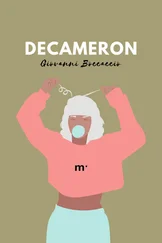“But what?” asked McCluskey, grinning. “But we don’t have the time? Miss Adams, we have nothing but time.”
Carole Adams laughed and nodded. Her story was this: that she had met a man on a visit to New York twenty years earlier. He worked for a war orphans relief organization and was killing time in the city before steaming off for Europe. He had two days left to his Gotham sojourn. Carole had come to New York to spend a few days with an old girlfriend who was traveling secretary for a Hollywood bond tour. “Come to New York while I’m there,” the friend had written her. Carole had come, but then the tour was rerouted through New England at the last minute. Carole now found herself alone in the city, although this wasn’t necessarily a bad thing; it was nice to be on her own after a dozen years in a crowded classroom, and more importantly, a dozen years in a bleak, loveless marriage.
It was 1945. 1945 was about trains and ships and everybody on the move. It was about going places and doing things that one had never done before — taking risks, not knowing what the next day might bring.
The man’s name was Nick Gombert. Like Carole, he had also been in his mid-thirties back in 1945. Like Carole, he was also married. And like Carole, he was also unhappily married. Nick and Carole tumbled inexorably into an impetuous two-day whirlwind romance — a romance that coincidentally included a night at the movies. The movie was The Clock , a story which, though dissimilar in many respects to the story of Carole and Nick, had two things very much in common: a time-compressed love affair and a climactic rendezvous beneath a clock.
“Is this your fated rendezvous, my dear?” asked Leister, who, like the Y & R men, had been thoroughly captured by Carole’s tale.
“Well, I don’t know. I think I’m going to sit down now. I’m very tired.”
Carole’s new friends moved with her to a spot on the floor next to the information booth. The woman who had been publicly working her crossword puzzle, having now apparently completed it, sat cross-legged on the counter flipping languorously through a copy of Harper’s Bazaar . Once Carole was settled, the three men sat down in an improvised crescent in front of her.
“Our agreement was this: that if after twenty years we had been successful in detaching ourselves from our respective unbearable marriages, and if we were not attached to someone else, then we would come to New York and, like Judy Garland and Robert Walker, meet under a particular clock.”
“ This clock?” asked a middle-aged woman who’d been standing within earshot nearby, and who now plopped herself down on the floor next to Carole. “Hello,” she added. “I’m Sylvia.”
“Hello, Sylvia. I’m Carole.”
“Carole lives in Kansas,” added Leister. “She’s come to see if her war beau is conveniently unattached and willing to pick up where the two of them so poignantly left off. Their very own real-life version of An Affair to Remember .”
The woman named Sylvia gasped in slow motion. “You came all the way from Kansas on the chance that he might be here waiting for you under this clock?”
“Not this clock. The one in Penn Station. That’s where they met: Judy and Robert. There was another clock where they rendezvoused later in the movie. It was at the Hotel Astor. But Nick and I — we both liked the idea of meeting under that beautiful suspended clock at Penn Station, because it’s close to where we met. At the Chock full o’Nuts only a couple of blocks away.”
“But honey,” said Sylvia in a strong Flushing Meadows accent that had apparently followed her up to Westchester County, “the old Penn Station building isn’t there anymore. They tore it down.”
“I know. That’s why I thought he might come here instead.”
“That’s a lot of ‘might,’” said Selman with a sympathetic frown. “He might be divorced. He might not have remarried. He might still want to see you again. He might —like you — substitute the Grand Central clock for the one in old Penn Station. If this was Belmont, sister, I wouldn’t place even a two-dollar bet on that horse.”
“But if I hadn’t come, I would have spent the rest of my life wondering if he had .”
Everyone nodded. Sylvia went, “Mmm-hmm,” while the Englishman said softly, “Yes, I see. You’re so right. And unlike Irene Dunne and Deborah Kerr, you haven’t been hit by a car. You just happen to have found yourself in the middle of a blackout.” Leister smiled. “And perhaps your beau is similarly inconvenienced.”
Carole’s face brightened. “I’ve thought about that. Do you think that could be it?”
“Honey,” said Sylvia, taking out a pack of gum, “the poor schlimazel could be trapped in the subway for all we know.” There was one stick left; she gave it to Carole.
“Of course, it’s probably best not to build your hopes up,” said McCluskey.
Carole nodded, her jaws beginning to work on the fresh stick of spearmint gum. “Who has food? I’m famished.”
Food was procured. The Oyster Bar was all but giving away seafood at their door because of concerns that it would quickly spoil without refrigeration. The quintet on the floor in front of Grand Central’s information kiosk feasted on fried oysters and tartar sauce, fried whole Ipswich clams (also with tartar sauce) and cultivated Maine mussels steamed with white wine and garlic.
Because Carole did not wish to leave her post, her four companions kept her company for the rest of the night.
When the power came back early in the morning and the trains started to run, there were awkward goodbyes exchanged among the kindred strangers: Sylvia and her two new friends, McCluskey and Professor Leister, departing for points north, and Selman returning to his office, where an important client presentation waited for no act of man or God. Carole left for her tiny room in the Taft Hotel, having decided to catch the first available flight back to Kansas, her faith in romance and the triumph of the human heart severely shaken both by the blackout and by the strong possibility of other human factors equally beyond her control.
When at the end of day the exhausted ad man plodded back down to the great Beaux Arts terminal to head home, he noticed someone waiting beneath the famous clock, which had been reset. It said 5:30 upon all of its four faces, and below it was the face of a man in his mid-fifties anxiously searching the crowd.
“What the hell,” said Selman to himself.
He walked over. Without shaking hands or even introducing himself, the Y & R account executive accosted the concerned-looking man with, “You’re a day late. You were supposed to meet her here on the ninth, not the tenth.”
“I beg your pardon?”
“Aren’t you Nick Gombert?”
“Yes, but — wait a minute. I’m almost positive it was supposed to be the tenth.”
“Okay, so then she got it wrong.”
“Where is she?”
“On her way back to Wichita, if she’s not there already.”
“You got her address?”
“Uh huh. We got her address.”
“ We ?”
Selman threw his arm around Nick’s shoulder. “Long story. Long night. Let me buy you a drink at the Oyster Bar and fill you in.”
“She came.” A private smile. “I can’t believe she came.”
“An almost perfect happy ending. So tell me: where were you when the lights went out?”
“Trapped on a subway train. On my way over here , if you can believe it. I wanted to come a day early to see the clock where I’d hoped the two of us would be meeting today.”
Читать дальше












